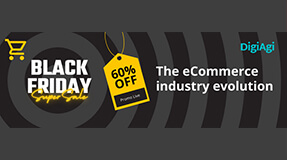Pro and cons when using influencers to promote a brand
Influencer marketing is a form of advertising in which brands collaborate with individuals who have a large following on social media or other online platforms. These individuals, known as influencers, use their platforms to promote the brand's products or services to their followers. Influencer marketing can be an effective way for brands to reach a large and engaged audience, but it also has its drawbacks.

Pros of using influencers to promote a brand:
Access to a large and engaged audience: Influencers often have a large and loyal following, which can be a valuable audience for brands to reach. This is especially true for influencers who have a strong connection with their followers and are able to influence their purchasing decisions.
Increased credibility: Collaborating with an influencer can lend credibility to a brand. When an influencer endorses a product or service, it can be seen as a recommendation from a trusted source, which can increase consumer trust in the brand.
Improved brand visibility: Working with an influencer can help increase the visibility of a brand on social media and other online platforms. This can be especially helpful for smaller brands or those trying to reach a new audience.
Cons of using influencers to promote a brand:
Lack of control: When working with influencers, brands may have less control over the messaging and content shared by the influencer. This can lead to unexpected or inappropriate content being shared, which can damage the reputation of the brand.
High cost: Influencer marketing can be expensive, especially for brands working with popular influencers who have a large following. This cost may not always translate into a significant return on investment.
Difficulty measuring effectiveness: It can be challenging for brands to measure the effectiveness of influencer marketing campaigns. It can be difficult to track the number of sales or conversions that result from an influencer's promotion of a brand.
Case study examples:
ASOS partners with influencers to promote its products: In 2017, online fashion retailer ASOS partnered with a number of influencers to promote its products on social media. The campaign was a success, resulting in an increase in sales and brand awareness.
GoPro collaborates with adventure influencers: GoPro, a manufacturer of action cameras, has frequently collaborated with adventure influencers to promote its products. The company has worked with influencers who engage in activities such as surfing, skiing, and mountain biking, and has seen success in increasing brand awareness and sales as a result.
Fyre Festival disaster: In 2017, the Fyre Festival, a luxury music festival in the Bahamas, was promoted by a number of influencers on social media. However, the event was a disaster and ultimately led to the bankruptcy of the company behind it. The use of influencers to promote the event was criticized as many of the influencers did not disclose that they had been paid to promote the festival. This example highlights the importance of transparency in influencer marketing and the potential risks of relying too heavily on influencers to promote a brand.


